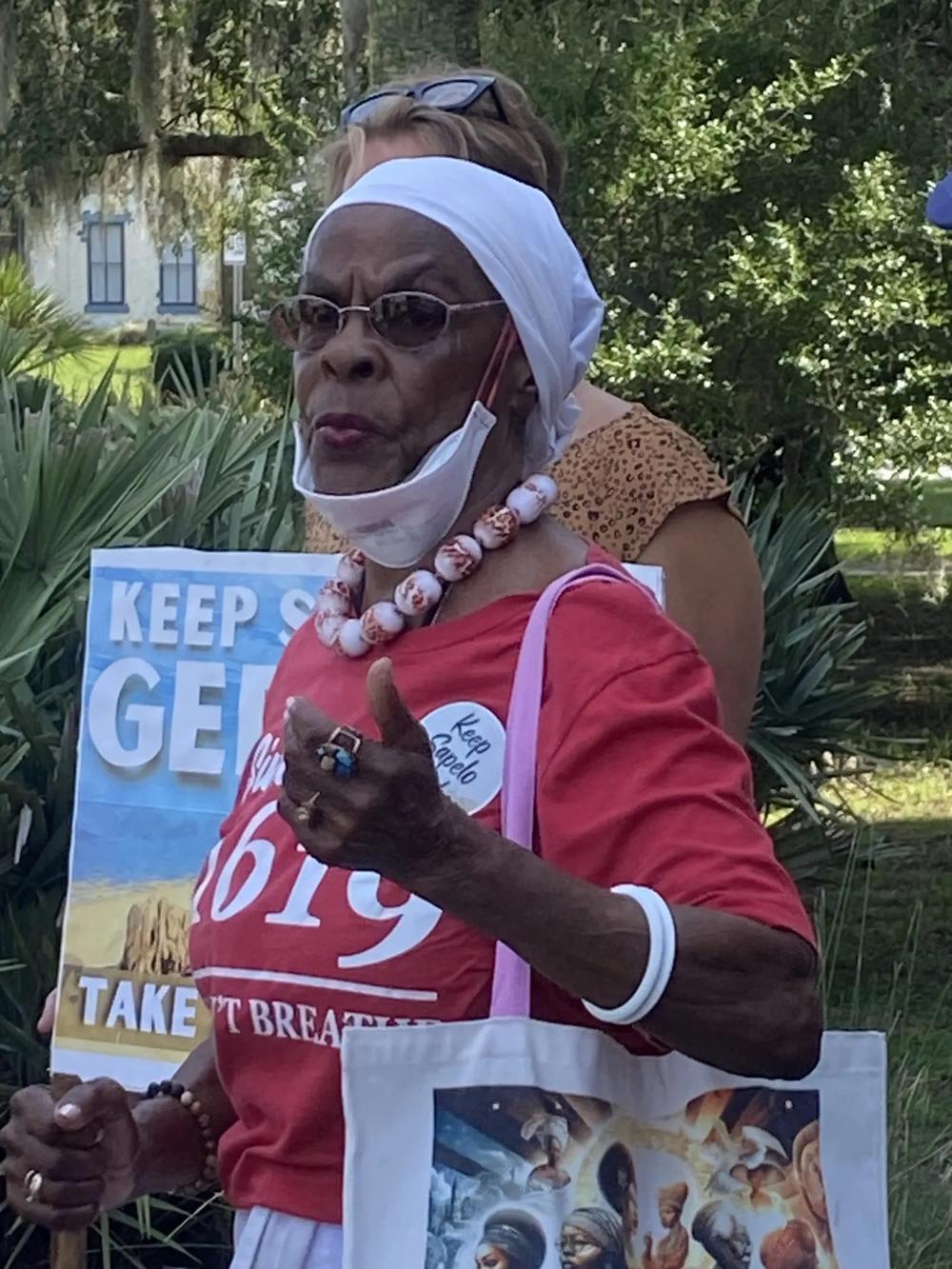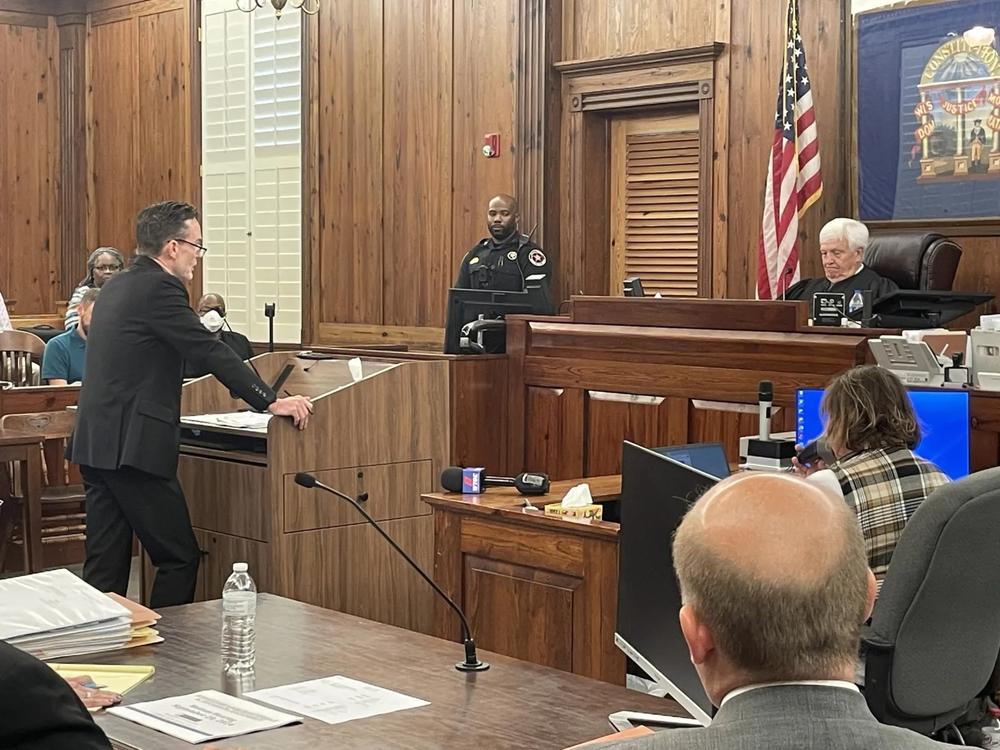
Caption
Alberta Mabry speaks to a press conference marking the submission of a petition to repeal the new zoning ordinance affecting Hogg Hummock on Sapelo Island. July 9, 2024 McIntosh County Courthouse
Credit: Susan Catron/The Current GA



